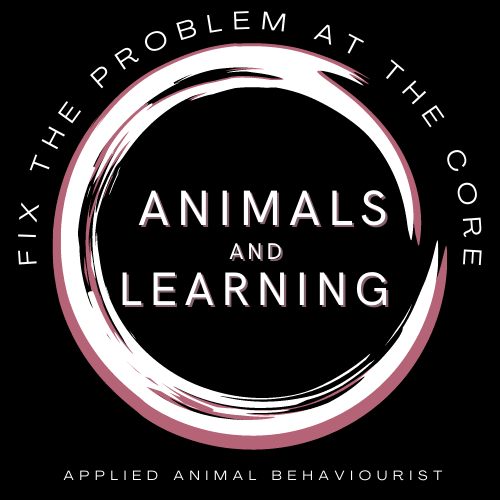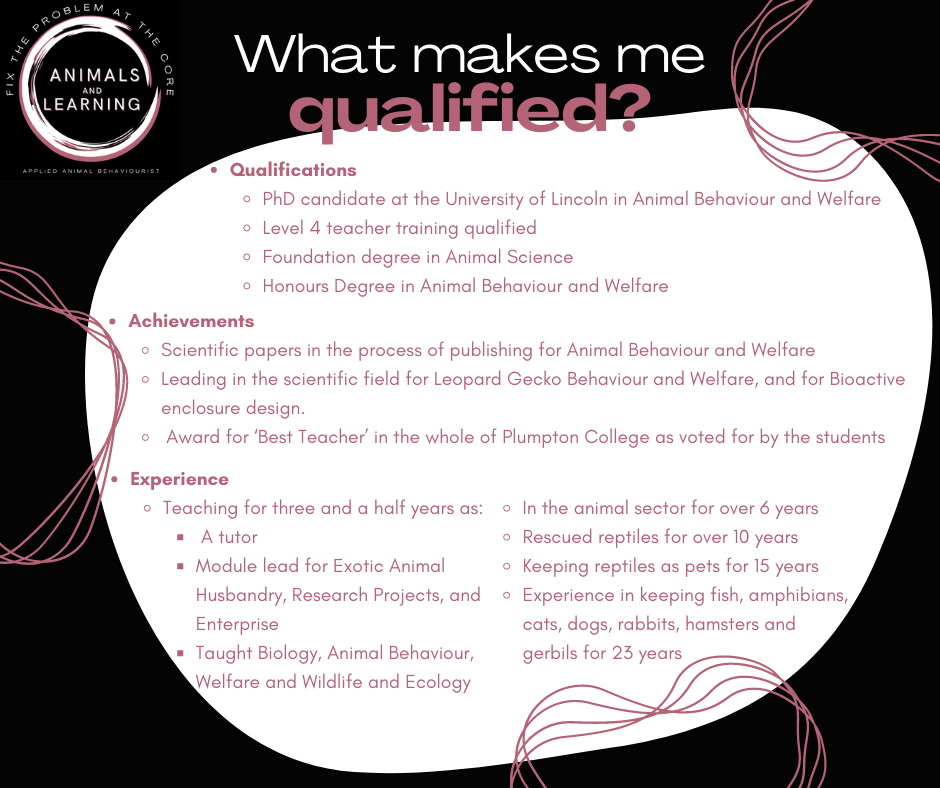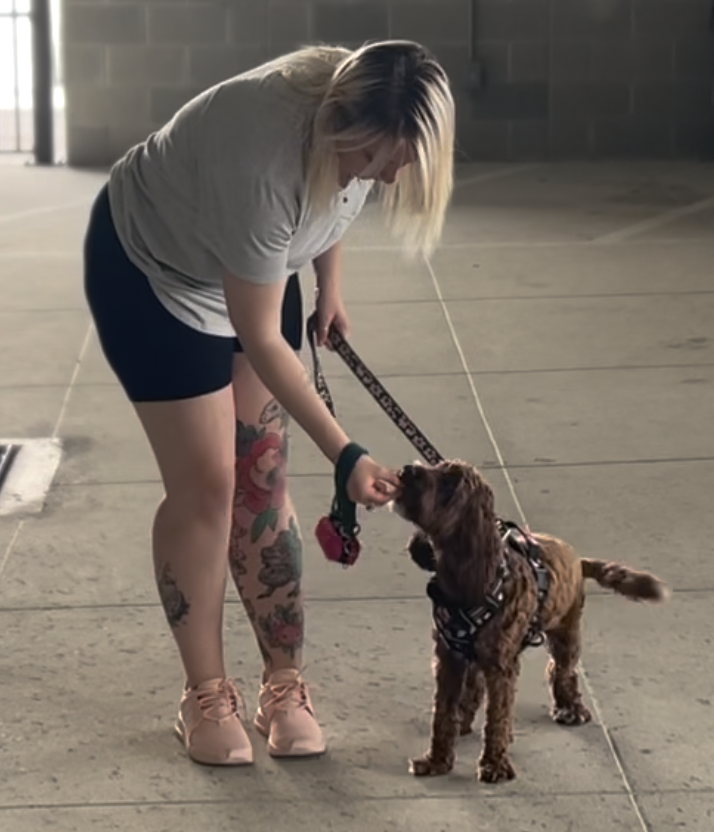FdSc Animal Science: Research Methods (level 4 – 10 credit points)LO 1: Identify academic sources to support research and enquiry within their field of study and correctly reference.
LO 2: Design and document an appropriate method for collecting data to test a hypothesis / answer a research question.
LO 3: Perform mathematical operations and manipulations that are essential for their field of study.
LO 4:Analyse data, interpret the results and accurately communicate their findings.
FdSc Animal Science: Chemistry (level 4 – 10 credit points)
LO 1: Demonstrate critical knowledge of the various causes of disease and investigate suitable methods of treatment, control and prevention.
FdSc Animal Science: Cell biology and Genetics (level 4 – 10 credit points)
LO 1: Describe the chemical structure and function of biological macromolecules and their influence on the structure and function of cells and tissues.
LO 2: Explain how animals obtain materials for respiration and excretion of waste.
LO 3: Evaluate the factors for promoting and maintaining animal health.
FdSc Animal Science: Ecology (level 4 – 10 credit points)
LO 1: Demonstrate understanding of the underlying principles of ecology that underpin conservation.
LO 2: Evaluate the different forms of conservation and their effectiveness to animal and human populations.
LO 3: Apply conservation principles and concepts to an autecological case study.
FdSc Animal Science: Enterprise (level 4 – 10 credit points)
LO 1: Investigate the principles and standards used to produce accounting and financial information.
LO 2: Evaluate PESTLE analysis and its impact on a business model.
LO 3: Analyse various marketing concepts and create a marketing plan.
LO 4: Analyse and evaluate the management of internal and external workplace communications.
FdSc Animal Science: Anatomy and Physiology (level 4 – 20 credit points)
LO 1: Evaluate the structure and function of the support and movement of animal bodies to include bone structures, joints, muscles and axis.
LO 2: Explain the roles of the nervous and endocrine systems in regulation and coordination of the animal body.
LO 3: Explain the structure and function of transport systems, to include circulatory, lymphatic, hepatic and systemic systems.
FdSc Animal Science: Animal Behaviour (level 4 – 20 credit points)
LO 1: Evaluate the usefulness of measuring behaviour in relation to physiological and psychological stress
LO 2: Display a critical understanding of the principles underlying learning, including imprinting and sensitive periods.
LO 3: Analyse the role of different forms of communication that enable species to adapt to their needs and environment.
LO 4: Identify current animal welfare legislation and investigate its effectiveness in the protection of animals.
FdSc Animal Science: Animal Reproduction (level 4 – 10 credit points)
LO 1: Explain the male and female reproductive systems, hormonal control, and process of fertilisation, embryo development, parturition and lactation, to include, mammal, bird and fish.
FdSc Animal Science: Animal Diversity and Evolution (level 4 – 10 credit points)
LO 1: Evaluate the scientific and historical basis of animal behaviour studies and their current application.
LO 2: Evaluate the historical linage that have allowed animals to evolve and diversify into the current phylogenetic tree
FdSc Animal Science: Animal Nutrition (level 4 – 10 credit points)
LO 1: Describe the structure and function of organs associated with the digestive tract and their roles in the digestive processes, to include, mono-gastric, ruminant, carnivore and herbivore; and nutrients and dietary requirements for a range of species.
FdSc Animal Science: Animal Husbandry (level 4 – 10 credit points)
LO 1: Safely handle, restrain, transport and manage a variety of species within animal collections.
LO 2: Undertake risk assessments within an animal collection and evaluate their effectiveness in line with current legislation.
LO 3: Evaluate the importance of maintaining the environmental, exercise and enrichment needs for a variety of species within a selection of animal collections.
LO 4: Demonstrate the ability to manage staff, budgets, advertisement and stock management.
LO 5: Demonstrate an ability to interact with the public during the College Open Day and evaluate own performance.
FdSc Animal Science: Statistics (level 5 – 10 credit points)
LO 1: Identify a topic of investigation within your field of study and conduct a systematic literature review.
LO 2: Generate a written proposal for an independent investigation, incorporating an appropriate and robust research design.
LO 3: Select, justify and apply appropriate statistical techniques to support quantitative research
LO 4: Interpret the results of statistical analysis, daw appropriate conclusions and communicate the results effectively and accurately.
FdSc Animal Science: Project 2 (level 5 – 10 credit points)
LO 1: Present their work in progress findings, demonstrating an ability to plan their time effectively
LO 2: Evaluate appropriate research and literature relating to their research aims
LO 3: Use a range of established techniques to initiate and understand critical analysis of information
LO 4: Effectively communicate the findings of their independent enquiry.
FdSc Animal Science: Work Placement (level 5 – 10 credit points)
LO 1: Appraise and justify the section their work place provider
LO 2: Analyse how the knowledge and skilled gained in their studies have impacted upon their work placement
LO 3: Evaluate the knowledge and skills developed whilst on work placement
LO 4: Identify and evaluate a critical incident relevant to the area of study that occurred during the work placement
FdSc Animal Science: Nature Photography (level 5 – 10 credit points)
No LO available. For this module we had to capture our own images in regards to a theme, show how we edit them and come to reasoned analytical judgments on the images presented in the final project. Then, a written essay was completed analysing famous nature photographers and what makes their work powerful, from the message portrayed, to the techniques used.
FdSc Animal Science: Animal Adaptations (level 5 – 20 credit points)
LO 1: Compare past and current theories of behavioural ecology and assess their practical application.
LO 2: Evaluate the theory of evolution of sexual selection and compare with alternative breeding strategies.
LO 3: Communicate the principles of different mating systems and methods of parental care in animals.
LO 4: Explain the different cycles and rhythms and their significance.
LO 5:Explore the biological adaptations an animal has to survive in their native environment.
FdSc Animal Science: Welfare and ethics (level 5 – 20 credit points)
LO 1: Evaluate the changing roles of animals in human society over time.
LO 2: Analyse and describe human perceptions of animals.
LO 3: Analyse and evaluate human impact on current issues concerning animal welfare.
LO 4: Assess and interpret behavioural indicators of animal welfare.
FdSc Animal Science: Wildlife Conservation (level 5 – 20 credit points)
LO 1: Demonstrate the ability to use and analyse a range of ecological field techniques.
LO 2: Demonstrate an understanding of the ecology and management of a specific ecosystem.
LO 3: Evaluate conservation and management strategies of rare species.
LO 4: Plan, design and undertake an individual ecological field investigation.
FdSc Animal Science: Animal Health Management (level 5 – 20 credit points)
LO 1: Evaluate factors essential for promoting and maintaining animal health.
LO 2: Demonstrate transferable skills relevant to good husbandry practices including identification and safe transporting.
LO 3: Demonstrate critical knowledge of the various causes of disease and investigate suitable methods of treatment, control and prevention.
LO 4: Perform and evaluate animal sample diagnostic tests, demonstrating safe practice, underpinning knowledge and application.
LO 5: Demonstrate critical understanding of the complementary therapies available for the treatment of animals.
LO 6: Effectively report and evaluate findings from field and laboratory analysis, applying underpinning knowledge and understanding.
BSc Hons Applied Animal Behaviour and Welfare: Animal Cognition and Neuroscience (level 6 – 30 credit points)
LO 1: Examine the different structures and relate to function for a variety of animal brains and investigate and analyse the processes controlled by the vertebrate brain.
LO 2: Identify and evaluate the role and function of different sensory organs and examine the effect of physiology on behaviour
LO 3: Review the processes involved in nerve transmission, explaining and interpreting the coding of signals.
LO 4: Evaluate the research surrounding consciousness and emotion in non-human animals.
LO 5: Examine the effect of neurobiology and neurobiological medications on behaviour.
LO 6: Interpret the functions of behaviour and expression of behavioural processes and evaluate the usefulness as a tool for welfare.
BSc Hons Applied Animal Behaviour and Welfare: Research Project (level 6 – 30 credit points)
LO 1: Plan, organise and execute the project investigation, using the most appropriate methods, with a minimum of external guidance
LO 2: Draw conclusions from their research, reflect on the limitations and explore routes for further investigation
LO 3: Communicate their research in a formal report
BSc Hons Applied Animal Behaviour and Welfare: Animal Welfare and the Law (level 6 – 30 credit points)
LO 1: Analyse the factors underpinning comparable animal welfare law in different countries.
LO 2: Analyse the drivers influencing changes in animal welfare law.
LO 3: Analyse and evaluate the impact and effectiveness of a selection of UK animal welfare laws and legislation.
LO 4: Evaluate the impact of official organisations and lobby groups on the creation and development of legislation.
LO 5: Evaluate the role of media presentation relating to a current animal welfare issue.
LO 6: Analyse and evaluate the validity of arguments relating to a current animal welfare issue.
BSc Hons Applied Animal Behaviour and Welfare: Human-Animal Interactions (level 6 – 15 credit points)
LO 1: Identify the relationship between humans and animals, and the behavioural evolution of species during domestication.
LO 2: Evaluate the factors underpinning the differing psychological values attributed to specific animal species.
LO 3: Analyse the impact on companion animals, which meet human emotional needs.
LO 4: Evaluate the conflict between meeting human and animal wildlife conservation needs.
BSc Hons Applied Animal Behaviour and Welfare: Contemporary Advances in Animal Behaviour (level 6 – 15 credit points)
LO 1: Explore and appraise the evidence for current issues and advancements in animal behaviour.
LO 2: Evaluate the validity of the evidence and its importance to the future of animal behaviour research.
LO 3: Display detailed knowledge of a current advancement in animal behaviour through presentation in scientific conference or seminar.
PhD
Erin is currently completing her PhD in Animal Behaviour and Welfare at the University of Lincoln. Erin is entering her third and final year, where she has been investigating the effect of enrichment of reptile behaviour and welfare. Alongside this, she completes demonstrating at the university to degree students on a range of animal behaviour and welfare subjects.
Level 5 research project - Are the RSPCA, Pets at Home, Petco and ASPCA reptile keeping guidelines adhered to by Leopard gecko, Bearded Dragon and Ball Python keepers?
Abstract
This study was conducted to see if the guidelines for the RSPCA and Pets at Home for UK owners and ASPCA and Pet Co guidelines for American keepers were adhered to for leopard geckos, bearded dragons and ball pythons. The study found that American owners were better at adhering to guidelines for enclosures, heating, UV lighting, cohabitation and thermostat. However it was noted that American guidelines were easier to meet so the American results were compared against English guidelines where often owners failed to meet the requirements showing that UK husbandry is of higher quality. How valid the guideless were for the five categories in providing high welfare standard was discussed and found that the guidelines by the companies could be refined to include alternative methods that were just as competent, showing the guidelines were very basic and owners would benefit from additional research. Many owners were getting their information from online sources such as Facebook and websites rather than books and academic journals so the idea of official journals and Herpetological societies creating partnerships with the websites and Facebook groups was explored and found it could be beneficial in improving welfare and keeping owners updated with ideas of new husbandry if such a partnership did come to exist.
Supervisor: Dr Jenny Watkins, Plumpton College.
Publication Status: Not published with no plans to, but available upon request.
Level 6 research project Do owners’ personality traits effect the perception that their Black and White Argentine Tegu (Salvator merianae) can form an emotional attachment.
Abstract
Research into the Black and White Argentine Tegu (Salvator merianae) is becoming more frequent due to their advance in numbers as an invasive species in Florida, USA and within the pet trade. Accordingly, it is imperative to determine if these animals have the capacity to form an attachment and possess emotions. However, with the shortage of research into reptilian emotions and the reptiles lack of motivation to perform studies, investigating such an idea is becoming increasingly challenging. Therefore, questioning if owners perceive a bond may be the first step in commencing research to explore the official ability of attachment being created by Salvator merianae. Eight statistical analyses were performed from a questionnaire distributed across reptile related Facebook groups. Five investigating the relationship between the OCEAN personality traits of the owner and their bond score given on the Pet Bonding Scale. To work as a control and for further investigation, the knowledge the owner holds on the species, age and gender were examined in regards to their relationship with the bond score. All eight statistical analyses detailed back as non-significant, with Agreeableness trending towards significant despite the Bonferroni correction. Therefore, it was only plausible to question such results given. This was accomplished through analysing future improvements of the small sample and the sampling technique, the ability for the Ten Item Personality Inventory to accurately measure personality given the Cronbach’s Alpha Coefficient result of 0.70 and finally the ability for the Pet Bonding Scale to accurately measure bonds between the owner and their Tegu. Once methodology flaws and strengths were established it was then theoretical to question the relationship between the OCEAN traits of the owners and the effect on attachment perception, if Tegu’s have the physical capability to form bonds through discussing the ideas of their own personalities and the possible restraints of this, their brain structure, evolutionary tree and conscious capabilities. It was deduced that through the lack of study within this area of research it cannot be assumed reptiles form emotions nor bonds, which are consequently absent for owners to perceive. Thus, it will have to be accepted that the paper has found no link between owners’ personality traits and the perception of an emotional attachment in their Black and White Argentine Tegu.
Supervisor: Dr Amber Devereson, Plumpton College.
Publication Status: Currently rewriting with plans to publish in Anthrozoös, but available upon request.
Level 7/8 Research Paper - Is bioactive best? A comparison of three different housing conditions on the behaviour and welfare of Leopard Geckos (Eublepharis macularius).
Abstract
Bioactive housing systems—which are self-sustaining enclosed ecosystems utilising active soil, invertebrates (isopods) and live plants—are suggested by some reptile owners to be an effective way to house captive reptiles to improve their welfare, yet, there is currently no research to support such claims. This study aimed to compare the effects on the behaviour and welfare of captive leopard geckos (Eublepharis macularius) between three different housing conditions (bioactive, enriched and standard) . Geckos (N=6) individually experienced each of the three housing conditions for four weeks during which within-enclosure behavioural observations were recorded. After experiencing each condition, the geckos underwent behavioural tests of anxiety utilising response to novelty (e.g. novel object and environment). Once the geckos had experienced all three housing conditions they received a preference test encompassing a choice between all three conditions. Within-enclosure observations revealed that the bioactive and enriched conditions allowed for a more extensive behavioural repertoire, leading to more choice over resource-access and control than the standard condition. The geckos utilised the additional enrichment in the bioactive and enriched conditions by splitting their time evenly between resources; they climbed; submerged themselves in their water bowl; and used all types of hide/shelter. However, we observed no differences in within-enclosure behaviour between the enriched and bioactive conditions, although the geckos exhibited a strong preference to spend time in the bioactive condition when given the choice. Further research is required to clarify the reasons for this preference. Few differences between the housing conditions were observed in the behavioural tests of anxiety, These findings suggest that leopard geckos should be kept in either enriched or bioactive conditions, with a range of hides/shelters, plenty of climbing opportunities and a water bowl big enough to submerge fully. However, bioactive conditions should be utilised where possible, to reflect the strong preference of the animals themselves.
Supervisor: Prof Anna Wilkinson, Prof Oliver
Publication Status: Finalising stages with plans to publish in Animal Behaviour, but available upon request.
Research in the works
Co author to the effects of enrichment on bearded dragons health, welfare and cognition
Lead author in the effects of bioactivity on leapard gecko cognition




